This article first appeared over 10 years ago on a website called Tartan Umbrella. Veteran Scots actor John Cairney, who was living in New Zealand at the time, is won over by the passion and thoughtfulness of a live performance by The Proclaimers in Auckland and recognises a new brand of Scottishness being taken around the world. He refers to the Reid twins as young – scary to think they are now in their 50s!
With several other hundred other Aucklanders, my wife and I went to see the Proclaimers the other night. We were surprised to find we weren’t the only oldies there – there was quite an assembly of venerable Scots Kiwis who had come out to hear two young men from Auchtermuchty sing:
‘Oh, I could walk five hundred miles, and I would walk five hundred more
Just to be the man who walked a thousand miles
To fall down at your door…’
Well, they had come twelve thousand miles as far as we were concerned and it was we who fell down before them – or to be more exact, rose to them before the night was over. At first glance, they looked a pair of ordinary student-type, Hibernian supporters who wore glasses and spoke politely, but before the first song was over we were caught. It wasn’t just the tight, precise, professional presentation that held, but the easy way their lusty, thoughtful lyrics sounded out fearlessly, in uncompromising Scots voices, a version, their version, of contemporary Scotland.
This was new to me. In my time, as a touring actor, I had been part of a tartan circus that sold an old Scotland to the Caledonian diaspora. We sang and spoke of Highland glens and the grannies’ cottages that seemingly abounded in them. My own particular paean was for a pulled-down Glasgow tenement which might have stood in Nostalgia Street rather than off the London Road in Parkhead, Glasgow.
As a performer, I was following on a trail mapped out by Harry Lauder, Kenneth McKeller, Andy Stewart and the Alexander Brothers. It was a good time while we had it, but the home-sick Scots we played to are now gone. Like Lochaber, they are no more. All round the world, there are now third and fourth generation Scots who have done well in their new country and want a vision of Scotland in their own terms. These two young troubadours proclaim just that. They have laid the ghost of Scotland past.
These guys sing about getting drunk and being sick with it, scratching fancy cars with keys and enjoying it, chasing girls – all in a country-and-western rhythm on a heavy rock base that entirely belies their latter Edinburgh locus but gets to the very heart of the timeless story they tell.
‘Come on nature, I don’t want to read a book or talk about the world
Come on nature, I just want to spend some time being boy to the girl…’
When they sang about city courtship it was something I could easily identify with.
‘I took the road that led me to your home town
I took the bus to streets that I could walk down
I walked the streets to find the one I looked for
I climbed the stair that took me to your front door…’
How many did just that? Suddenly I was back in my post-war Glasgow streets where all the front doors were up a stair. Beyond the simple, elemental ambitions of adolescence, however, is extended a trenchant premise on multi-cultural Scottish condition which is still in thrall to London. This is touched on in – Cap in Hand. They obviously think before they write:
‘I could get a broken jaw from being in a fight
I know it’s evening when day turns to night
I can understand when Stranraer are so lowly
They could save a lot of points by signing Hibs goalie
But I can’t understand why we let someone rule our land
We’re cap in hand.’
There is no apology here, no audience-grovelling or any mock-modesty. Their Scots pungency is in your face. The uncompromising relentlessness of it all eventually wears one down, or rather, as I said, forces you to your feet. I couldn’t believe I was lifting my old bones to march to their song. All of us in that theatre that night were
‘Gonna find out where the heart’s gone…
What do you do when democracy fails you?
What do you do when the rest can’t see it’s true…
From two pairs of glasses they look out on a whole world beyond a remembered sunshine on Leith and each sees himself as the other sees him. They are not twins for nothing. It shows in their vocal blend, a effortless harmony that owes as much to blood as bedroom rehearsals. They stand at their respective microphones, as symbiotically conjoined as they were at birth. It’s a heart-lifting sight. Nonetheless, big questions were being asked in a quick succession of songs that swept a lot of dust from under the carpet. It got in your eyes and made them water. Or was it that you were crying?
‘Ma heart was bro-ken
Sorrow…Sorrow
The evening ended with Jean, and we all got lucky together in a crescendo that rose from the sussurant, ultra-pianissimo of – ‘I love her I love her I love her I -’ with the urgently interjected ‘Jean- Jean-Jean’ gradually building until it swept us in a hysterical daze out into the Auckland night. Going home in the car, we were still singing:
Ma tears are dry-in’
Thank you. Thank you.’
Yes, thank you, The Proclaimers. You know, I don’t even know their names. Not that it matters. I just know they were good. And they were Scottish. Not that that matters either. Oh yes, it does.

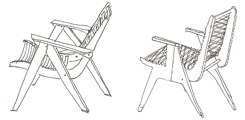
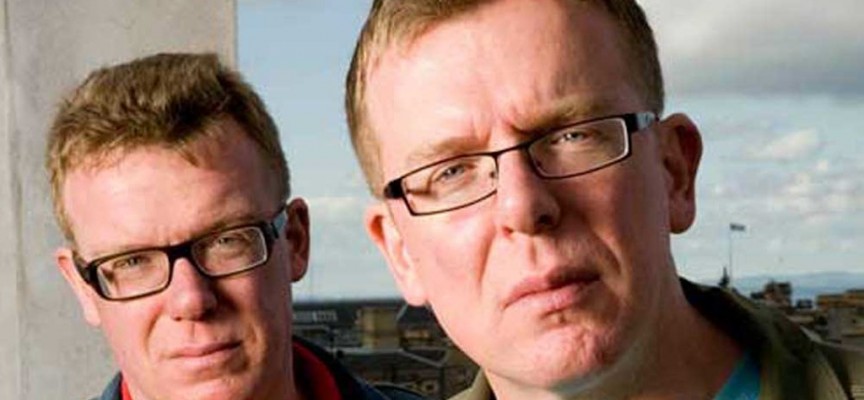
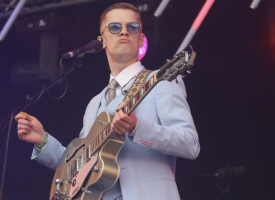
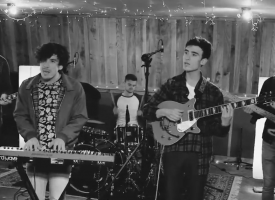
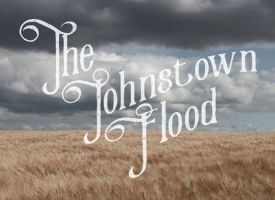

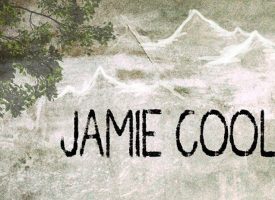

No comments!
There are no comments yet, but you can be first to comment this article.